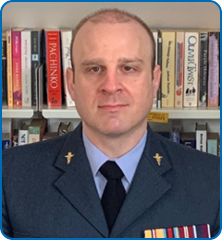As of 1 April, 2022, North Bristol NHS Trust has been designated as one of nine Specialised NHS England Complex Mesh Centres, supporting patients with mesh complications linked to urinary incontinence and vaginal prolapse in the South West.
These centres provide management of urinary incontinence and vaginal prolapse mesh complications, with the engagement of the multi-disciplinary team (MDT), which includes surgeons, physicians, imaging specialists, nurses, pain specialists, physiotherapists, and clinical psychologists in line with the published service specification.
The MDT of specialist clinicians is led by Professor Hashim, Consultant Urological Surgeon, and Mr. Madhu, Consultant Urogynaecologist.
Referrals:
Referrals to the North Bristol NHS Trust Mesh Complications Specialist Service MDT will be from hospital trusts and GPs in the South West, as listed below.
Patient mesh complications referrals will be triaged by the Clinical Lead(s), and invited to an outpatient appointment. They will be referred to selected members of the MDT as required, and each patient will be discussed at the monthly MDT meeting. An outpatient appointment will then be arranged with the patient to discuss and agree their treatment plan.
The region covered includes:
Hospital Trusts:
- Royal Cornwall Hospitals NHS Trust
- University Hospitals Plymouth NHS Trust
- Royal Devon and Exeter NHS Foundation Trust
- Northern Devon Healthcare NHS Trust
- Torbay and South Devon NHS Foundation Trust
- Somerset NHS Foundation Trust
- Yeovil District Hospital NHS Foundation Trust
- University Hospitals Bristol and Weston NHS Foundation Trust
- Royal United Hospitals Bath NHS Foundation Trust
- Great Western Hospitals NHS Foundation Trust
- Gloucestershire Hospitals NHS Foundation Trust.
GPs within the following Integrated Care Partnerships:
- Cornwall and the Isles of Scilly
- Devon
- Somerset
- Bristol, North Somerset, and South Gloucestershire
- Bath and North East Somerset, Swindon, and Wiltshire
- Gloucestershire
To refer:
- GPs: Please refer via the Referral Assessment Service in eRS:
- Speciality: Urology
- Clinic types: Urology - (In)Continence, or Not otherwise specified
- Speciality: Gynaecology
- Clinic types: Urogynaecology / prolapse, or Not otherwise specified
To contact us:
Telephone: Lynda Bishop, MDT coordinator for the Bristol Mesh Specialist Service: 0117 414 0899
Email: bristolmeshserviceadmin@nbt.nhs.uk
Further information
Patient information and decision aids are available from the British Society of Urogynaecology


